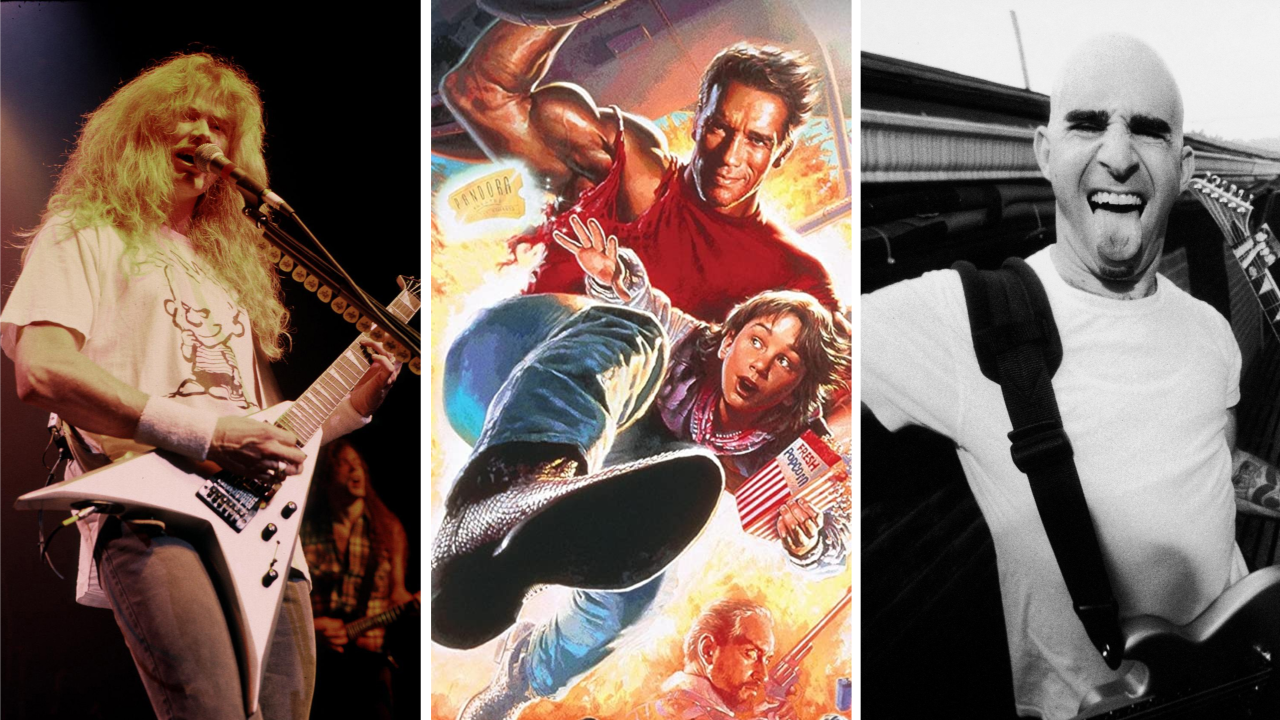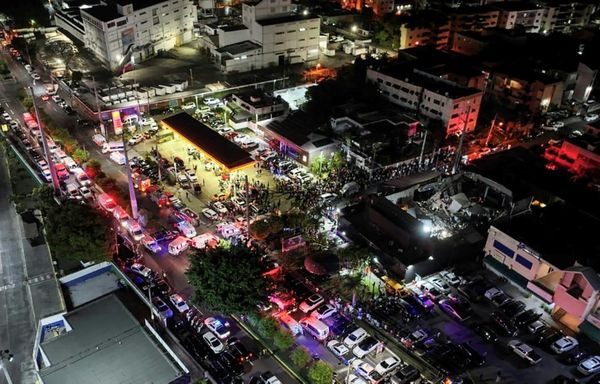
The dawn of the 90s remains one of the most turbulent and important eras in the history of hard rock. Grunge - catapulted onto the map by Nirvana’s Nevermind in the fall of 1991 - was already well into its swan song; with the titanic infusion of big label money into anything that sounded vaguely “grungey,” the genre quickly dissolved into dreary, mid-tempo cat shit, artlessly hailed as either “alt-rock” or “alt-metal.” The metal community faced its own identity crisis, with Metallica turning in their outsider credentials by way of a polished collection of jock jams known as the Black Album. Meanwhile, bands that dominated mainstream radio in the 80s faced the prospect of either evolving with the times or staying the course and hoping to ride out the storm. With a new generation of bands hungry for radio play, it was a sink-or-swim proposition for the big names. In short, it was an absolutely phenomenal time for rock and metal fans.
While 1992’s Singles soundtrack found meteoric commercial success with its eclectic smorgasbord of heatseeking Seattle acts like Pearl Jam and Soundgarden, the soundtrack to the 1993 Arnold Schwarzenegger film, Last Action Hero, delivered a juicy, cherry-picked microcosm of heavy music in the early-90s.
Last Action Hero could have - should have - been a thundering summer blockbuster. Released in June, 1993, it boasted a bona fide A-lister in Schwarzenegger and an inventive plot about a young boy thrust from his seat in a movie theatre, straight into the middle of an action movie, where he assiduously tries to convince the characters of the movie-within-the-movie that they are actually all in a movie. Despite some genuinely clever and occasionally funny moments, the movie failed to deliver a compelling story. The soundtrack, however, was an entirely different story.
With two exceptions, the collection featured all-new material, written either expressly for the film or culled from unreleased outtakes. Front and centre is AC/DC’s Big Gun - a sleazy, fist-pumping anthem that the band wrote expressly for the film. At the time, AC/DC were floundering for relevance in the wake of a streak of middle-of-the-road outings, utterly bloated with filler (Flick Of The Switch, Fly On The Wall, Blow Up Your Video, The Razor’s Edge). Big Gun saw the Aussies hook up with producer Rick Rubin for the first time and together they knocked it out of the park. The track found real estate on rock charts across the globe, including a badly-needed Number 1 on the US Mainstream Rock.
Def Leppard were another band unsure of where they stood at the time, with many of their 80s colleagues written off as casualties of Kurt Cobain and Co’s 1991 coup. While on tour, the film’s team reached out to the band to see if they had any unknown (read, not Pour Some Sugar On Me), tracks that they might contribute to the soundtrack. Leppard sent over a cassette of some unfinished demos for their Retro Active album. In those tapes, the late Michael Kamen (who later won a Grammy with Metallica for S&M), found a winner in an affecting ballad called Two Steps Behind, to which he added a lush orchestral string arrangement. Similar to Big Gun, the track generated sturdy commercial success, earning Def Leppard a brand new hit.
Riding high on the success of 1992’s Dirt, Alice In Chains contributed two ripping unused tracks from that album - A Little Bitter and What The Hell Have I - both of which stand toe-to-toe with Dirt’s iconic tracklist.
You want thrash? You got it! Half of the Big Four appear on the Last Action Hero soundtrack, with Megadeth scoring a Grammy nomination for Angry Again, written just for the movie. Penned by Dave Mustaine, fresh out of rehab and at his most ornery, the track hit the Mainstream Rock top 20 and later appeared on 1995’s Hidden Treasures EP. Anthrax, meanwhile, introduced former (and now current) Armored Saint vocalist John Bush as their new frontman in 1992. During the sessions for their obscenely-underrated album, The Sound Of White Noise, they also recorded an utterly devastating track called Poison My Eyes, packed with freaky scratching, high-velocity tempos and a brawling, shout-out chorus. Anthrax didn’t include it on their album and the film’s producers were only too happy to give it a home.
Fishbone never broke into the mainstream but they remain a beloved favourite of hard rock fans and their contribution - Swim - illustrates precisely why, with its streetwise alliance of metal, punk, ska and R&B. Representing the insurgent hip hop scene of the day, Cypress Hill contributed the album’s only other pre-existing hit (next to a live version of Aerosmith’s Dream On), with Cock The Hammer, from their sophomore outing, Black Sunday.
The album’s massive title track, courtesy of Tesla, is the most underrated track on the album. With lyrics inextricably tied to the movie’s plot, it loses the amorphous lustre of less-literal tracks but good luck not pushing your speakers to the limits of their circuitry when the track’s thundering chorus kicks in. Tesla might not have notched the commercial peaks of bands like Mötley Crüe or Poison but they never became a punchline for cheap hair metal jokes, either, and songs like this offer convincing proof as to why.
With a 40% score on Rotten Tomatoes’ Tomatometer and a 47% audience score, the film falls short of even cult classic status. But thirty years later, the soundtrack still stands up.







